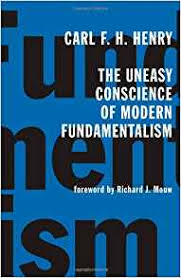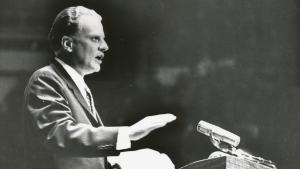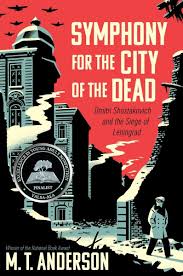We used to have fundamentalist Christians, but where are they now? I rarely hear anyone refer to themselves by that label. Do you?
When many of the main denominations in the U.S. began to be influenced by liberal theological ideas in the late nineteenth century, some conservative Protestants responded. They wanted to affirm the authority of Scripture, the virgin birth of Jesus, his bodily resurrection, and much more. This movement gained the name Fundamentalism in the early twentieth century after publication of a series of twelve volumes called The Fundamentals containing ninety essays by such leading lights as James Orr, B. B. Warfield, R. A. Torrey and many others. The name was adopted widely by conservative Christians.
 The label took on decidedly negative connotations during the Scopes Monkey Trial on evolution in July 1925 when journalist H. L. Mencken heaped scorn on those defending a literal interpretation of Genesis. After that fundamentalists retreated from the public scene in a defensive posture against a dominant culture they saw as their enemy.
The label took on decidedly negative connotations during the Scopes Monkey Trial on evolution in July 1925 when journalist H. L. Mencken heaped scorn on those defending a literal interpretation of Genesis. After that fundamentalists retreated from the public scene in a defensive posture against a dominant culture they saw as their enemy.
In the late 1940s, two important events altered the religious landscape in the U.S. Carl F. H. Henry published The Uneasy Conscience of Modern Fundamentalism in 1947, saying it was time for conservative Christians to not be separatists and instead engage the culture, seeking to influence it constructively.
Two years later Billy Graham was launched on the world stage with his first major evangelistic campaign in Los Angeles. He welcomed Catholics, Anglicans, Orthodox and Black Christian leaders to his stage–much to the consternation of Fundamentalists. Graham also took the label evangelical.
 The two groups, evangelicals and fundamentalists, lived side by side for many years but of late, especially in the news media, we almost never hear about Christian fundamentalists, only about evangelicals, especially in relation to politics. Conservative Christians seem to have followed suit. They mostly call themselves evangelical, rarely fundamentalist. Even Bob Jones University, on its website, does not describe itself with the term.
The two groups, evangelicals and fundamentalists, lived side by side for many years but of late, especially in the news media, we almost never hear about Christian fundamentalists, only about evangelicals, especially in relation to politics. Conservative Christians seem to have followed suit. They mostly call themselves evangelical, rarely fundamentalist. Even Bob Jones University, on its website, does not describe itself with the term.
But why? Did the more open, socially engaged evangelicals win and the more closed, insular fundamentalists diminish? Yes and no.
Conservative Protestants are now generally more socially active though usually on a narrow range of issues like abortion, pornography, evolution, and gay marriage as opposed to the comprehensive engagement Henry urged. And they have tended not to call themselves fundamentalists anymore, preferring evangelical.
Even so they often remain separatist in their inclinations. Usually they take a defensive rather than a generous posture toward culture. Rarely do they openly listen to or cooperate with those they differ with. They can be much like political conservatives and liberals generally who tend to follow likeminded news sources and only associate with those they agree with.
One other factor, I think, has contributed to the demise of evangelicalism as the kinder, gentler fundamentalism Henry imagined. Just as moderates seem to have disappeared from both political parties, moderate evangelicals have tended to leave the movement. They care about a wide range of issues, believing the Bible has having much of value to say about the environment, race, poverty, human rights, cooperation among nations, violence, modern slavery, war refugees, women, children, and more. But they have become disaffected from what they see as a narrow and strident form of Christianity that seems not to welcome people like them.
Why are there no more Christian fundamentalists? I wonder if it is because fundamentalists over the years have largely rebranded themselves and coopted the term evangelical, while many of the more moderate evangelicals have moved to mainline churches or none at all.
What do you think?
Photo credit: InterVarsity, Urbana 64

